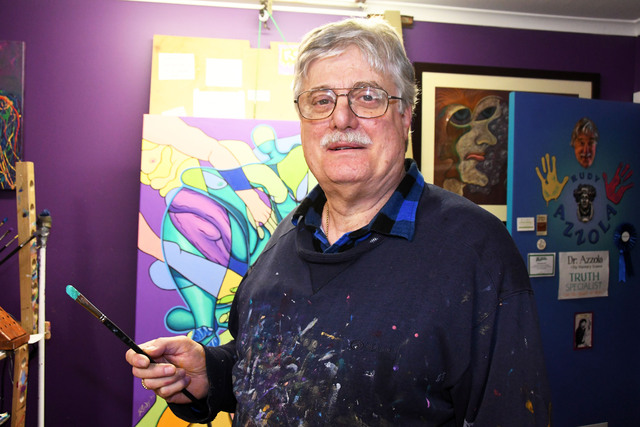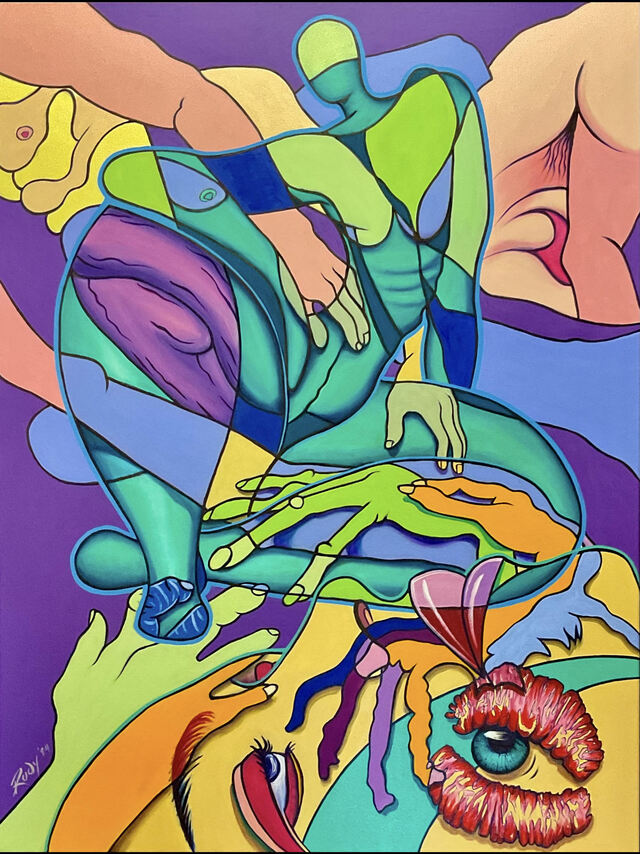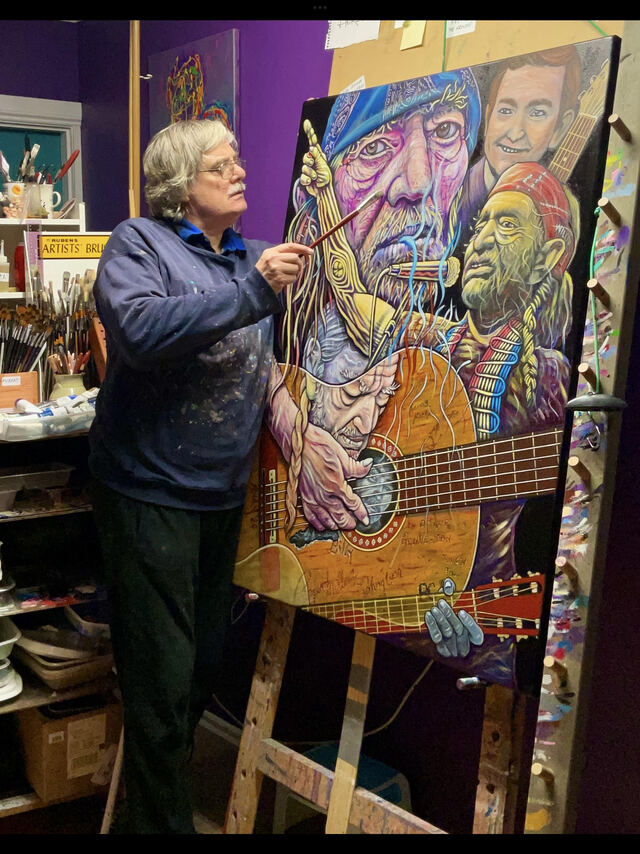PRECEDE: Many have an estranged relationship with art and artists, in most of the world it seems to inhabit a very small world of a very small group of rather weird people producing rather weird things. That, most of all, doesn’t seem intent on being seen by anyone outside of their very small world. However, many artists rally against the staleness of the art world and attempt to bring its roots back to mass participation. Berwick artist Rudy Azzola takes this one step further, he doesn’t want to appeal to the public, he wants the public to realise that they all have the capability for art themselves. Gazette Journalist Corey Everitt spoke with Azzola about the urgency of artistic expression and the simplicity of authenticity.
BREAKOUT QUOTE: “Art was around before books, before language, that’s why it’s so powerful.”
What is the purpose of art? Many have written countless pages and entrenched themselves in heated debates on this question and out of the mess little definitive has emerged.
The most widely held answer is that the illusive nature of art is not just the form, but also the content and asking the question of purpose is just one of its many traps.
That would at least seem the case with the recent history of modern art, but Azzola is not a big fan.
“I mean, 20th-century art, for me, is a complete waste of time,” he said.
“You know, with the likes of Jackson Pollock and Andy Warhol, they just pretend, as far as I’m concerned they really had nothing at all to say.”
His paintings are hard to miss, they are striking in colour, form and, on occasion, subject. There are many details you can assemble from afar or isolate closely.
But the central motivation is quite clear.
“Some people try and analyze it and say, oh, it means this on an intellectual level,” he said.
“I’m not interested in the intellect. What I’m interested in is an emotional reaction that you don’t have to explain.
“You say it makes me feel sad, it makes me feel happy, it makes me feel angry but as long as it makes you feel something, that’s what’s important to me.”
There are certainly some influences you can pick up on if you are familiar, art has always been a passion for Azzola.
When he was young he says he ‘always felt like there was something wrong with me’, in significant part due to growing up in an Anglo-dominated environment that was prejudiced against Italians.
He found solace in art, most of all the Renaissance masters of his motherland. When he went to art school ‘things started to make sense’.
What he loved most was not just the beauty of the Sistine Chapel or the Da Vinci’s in the Louvre today, but that it was a craft. There was a discipline to their years-long work to produce their icon pieces that demanded respect and pride in their work.
That’s why he became a graphic artist, back when it was still done with hands. After working for many years, he would eventually leave the discipline once computers took over the trade.
The frustration for Azzola is that merging with technology for means of productivity thwarts the actual craft that imbues our labours with our own humanity.
Art is not reserved for a few but is something essential to illuminating everyday life.
“We’re born perfect, we’ve got all the wisdom we need, and as we grow, we lose that wisdom because what we learn is how to get on in society, how to get a job, you know, validation, all this,” he said.
“And we lose that initial wisdom that we were born with to quite a large degree.”
“I think it’s our responsibility to try and bring that back to elucidate people, like Indigenous cultures, they don’t have books, you know, they pass on their knowledge, from word of mouth and dance and song and art.
“Art was around before books, before language, that’s why it’s so powerful.”
He has declared his vision of an aesthetic life called ‘Emotional So-Realism’, which he says is aimed to ‘create stories that serve to awaken those who have succumbed to the darkness’.
Mainly working in his own studio today, over the last several decades he has been an active figure in the local art scene.
Previously living in Gembrook, he established the Gembrook Woodcraft Gallery involving many local artists over a number of years.
He also taught art at Monash University and recently he ran classes through Living and Learning Pakenham and Cardinia Men’s Shed.
“I enjoy empowering other people, especially to come up with original ideas and use their imagination because, with all this technology these days, people have lost the power of looking inside and finding their own wisdom,” he said.
Recently, Azzola won the first prize in this year’s theme of the Pakenham Show; Juxtaposition.
His winning entry was called ‘In the race to Dystopia, who came first the rooster or the rat?’ depicting Vladimir Putin and Donald Trump among the respective bird and rodent.
Currently, he has worked on ten new paintings varying in subjects from surrealist compositions to politically-inspired expressions.
Nonetheless proud of the award, his dearest achievement is simply keeping true to himself.
“It’s about expressing who you really are without all the bull****, all the filters,” he said.
“The way I do my art is always looking for the truth. What’s the truth in this scenario, you know, and what’s happening with the Middle East or Ukraine, or what’s the human condition, what are people feeling, happy, sad?
“I can’t think of anything else I’d want to do with my life.”



















